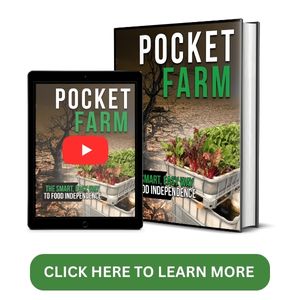Are you eager to explore effective strategies for sustainable food production? Join us on a journey through the realms of Crop Rotation, Agroforestry, Integrated Pest Management, and more!
Discover the power of Organic Farming, Hydroponics, Permaculture, and Precision Agriculture. Dive into the depths of Sustainable Aquaculture and learn how to reduce Food Waste. Together, let’s unlock the secrets to a greener, more nourishing future.
Get ready to feast on knowledge and become a champion of sustainable food production!

Crop Rotation
What are the benefits of implementing crop rotation in our sustainable food production practices?
Crop rotation is a valuable strategy that promotes crop diversification and enhances soil fertility. By rotating different crops in a specific sequence, we can prevent the buildup of pests and diseases that target specific plants. This reduces the need for harmful pesticides and promotes natural pest control.
Additionally, crop rotation helps to improve soil fertility. Different crops have unique nutrient requirements, and by rotating crops, we can prevent the depletion of specific nutrients in the soil. This leads to healthier and more productive crops.
Furthermore, crop rotation can break the cycle of weeds, as different crops have different weed management needs.
Agroforestry
Agroforestry is another effective strategy that can be implemented in sustainable food production practices to further enhance crop diversification and promote environmental resilience.
It is the integration of trees and shrubs with crops and livestock on the same piece of land. This practice offers numerous benefits for farmers and the environment.
By incorporating trees into agricultural systems, farmers can improve soil health, enhance water retention, and prevent erosion. The shade provided by trees can also reduce temperature and moisture stress on crops, leading to higher yields.
Agroforestry also promotes biodiversity by creating habitats for beneficial insects and wildlife. Additionally, this approach allows for the implementation of permaculture techniques, such as companion planting and natural pest control, further reducing the need for synthetic inputs.
Integrated Pest Management
When it comes to sustainable food production, one effective strategy is Integrated Pest Management (IPM). By utilizing natural pest control methods, such as introducing beneficial insects or using traps, we can reduce the reliance on chemical pesticides.
Another benefit of IPM is crop rotation, which helps prevent the build-up of pests and diseases in the soil. By implementing these practices, we can’t only reduce chemical usage but also promote healthier ecosystems and more resilient food systems.
Natural Pest Control
We have found that natural pest control, specifically through integrated pest management, is an effective strategy for sustainable food production.
By utilizing companion planting, where certain plants are grown together to deter pests, we can reduce the need for chemical pesticides. For example, planting marigolds alongside tomatoes can repel harmful insects, such as nematodes.
Another method is biological control, which involves introducing natural predators or parasites to control pest populations. Ladybugs, for instance, feed on aphids, effectively managing their numbers without the use of harmful chemicals.
Lastly, implementing crop rotation can disrupt pest life cycles and reduce the risk of infestation.
These natural pest control methods not only promote a healthier and more sustainable environment but also contribute to the production of safe and nutritious food.
Crop Rotation Benefits
To continue managing pests naturally and sustainably, we can explore the benefits of crop rotation within integrated pest management.
Crop rotation involves planting different crops in a specific sequence on the same piece of land. This practice helps improve soil health and increase yields in a number of ways.
Firstly, rotating crops helps break pest cycles by disrupting their life cycles and reducing their population. Different crops attract different pests, so by changing the crop each season, we can discourage pests from establishing themselves.
Secondly, crop rotation improves soil health by reducing soil erosion, promoting nutrient cycling, and preventing the buildup of pests and diseases. By rotating crops, we can maintain the fertility of the soil, leading to healthier plants and higher yields.
Reduced Chemical Usage
Implementing integrated pest management techniques is crucial for reducing chemical usage in sustainable food production. By adopting these strategies, farmers can minimize the harmful effects of pesticides on the environment and human health.
Here are some effective approaches for achieving reduced chemical usage:
- Alternative Pesticides: Utilizing natural and less toxic alternatives to conventional pesticides can help reduce chemical inputs. These alternatives include biopesticides, which are derived from living organisms, and botanical extracts, such as neem oil or garlic spray.
- Regenerative Agriculture: This holistic approach focuses on building healthy soils and promoting biodiversity. By implementing regenerative practices like cover cropping, crop diversification, and integrated pest management, farmers can enhance natural pest control mechanisms and minimize the need for synthetic pesticides.
- Monitoring and Thresholds: Regular monitoring of pest populations helps identify when intervention is necessary. By setting action thresholds, farmers can strategically apply pesticides only when pest populations exceed a certain level, minimizing unnecessary chemical use.
Organic Farming
An effective strategy for sustainable food production is the incorporation of organic farming practices.
Organic farming focuses on maintaining the health of the soil and utilizing natural methods to control pests and diseases. One important aspect of organic farming is obtaining organic certification, which ensures that the food is produced using organic methods and meets specific standards.
This certification not only provides consumers with confidence in the quality of the food they’re purchasing but also encourages farmers to follow sustainable practices.
Organic farming promotes soil health by avoiding the use of synthetic fertilizers and pesticides, which can harm beneficial organisms in the soil. By nourishing the soil through the use of organic matter and crop rotation, organic farmers create a balanced ecosystem that supports the growth of healthy and nutritious food.
Hydroponics
Let’s talk about hydroponics, an innovative method of sustainable food production.
One of the major benefits of hydroponics is its ability to maximize crop yields in a limited space, making it an ideal solution for urban areas or regions with limited arable land.
Additionally, hydroponics offers significant water conservation advantages compared to traditional soil-based farming methods, as it uses up to 90% less water.
This makes hydroponics a promising strategy for achieving sustainable food production in a world facing increasing water scarcity.
Benefits of Hydroponics
One effective strategy for sustainable food production is integrating hydroponics, which offers numerous benefits for growing crops. Hydroponic systems, such as vertical farming, provide an innovative and efficient way to cultivate plants without soil. Here are some of the key benefits of hydroponics:
- Water conservation: Hydroponics uses up to 90% less water compared to traditional soil-based farming methods. The water is recycled within the system, reducing waste and ensuring optimal hydration for the plants.
- Space efficiency: Vertical farming allows for crops to be grown in stacked layers, maximizing the use of limited space. This is particularly beneficial in urban areas where land is scarce.
- Year-round production: Hydroponic systems provide controlled environments, allowing for crops to be grown year-round regardless of seasonal limitations. This ensures a consistent and reliable food supply.
Water Conservation in Hydroponics
To conserve water in hydroponics, we implement efficient irrigation systems and closely monitor water usage.
In hydroponics, water is an essential resource for plant growth, and it’s crucial to use it efficiently. One effective strategy is to utilize automated irrigation systems that deliver water directly to the plants’ roots, minimizing any wastage. These systems can be programmed to provide the plants with the precise amount of water they need, reducing water usage significantly.
Additionally, closely monitoring water usage allows us to identify any leaks or inefficiencies in the system and address them promptly.
Another way to conserve water in hydroponics is by implementing aquaponics, a system that combines hydroponics with aquaculture. In aquaponics, the water used for fish farming is recycled and filtered to provide nutrients to the plants, creating a sustainable and water-efficient system.
Permaculture
We can incorporate permaculture practices to enhance sustainable food production. Permaculture is an approach to designing and managing systems that mimic natural ecosystems. It focuses on utilizing natural resources efficiently and regenerating the environment.
Permaculture offers several benefits for sustainable food systems:
- Increased biodiversity: By incorporating a variety of plants and animals, permaculture promotes a diverse and resilient ecosystem, reducing the risk of crop failure and pest outbreaks.
- Soil health improvement: Permaculture emphasizes building healthy soil through techniques like composting, mulching, and crop rotation, which enhance nutrient availability and water retention.
- Conservation of resources: Permaculture minimizes the use of non-renewable resources like fossil fuels and synthetic fertilizers, resulting in reduced environmental impact and long-term sustainability.
Precision Agriculture
Continuing our exploration of effective strategies for sustainable food production, let’s now delve into the realm of Precision Agriculture, where data-driven decision-making plays a crucial role in optimizing resource utilization and improving crop yields.
Precision Agriculture, also known as precision farming, involves using technology and data analysis to make informed decisions about crop management. By collecting and analyzing data on soil conditions, weather patterns, and plant health, farmers can tailor their practices to maximize efficiency and minimize environmental impact.
This approach allows for precise application of fertilizers, pesticides, and water, reducing waste and ensuring that resources are used effectively. Precision Agriculture goes hand in hand with organic farming, as it promotes sustainable practices and reduces the need for synthetic inputs.
Sustainable Aquaculture
How can we ensure sustainable aquaculture practices?
Sustainable aquaculture is crucial for the future of our oceans and the health of marine ecosystems. By implementing effective strategies, we can support the growth of the aquaculture industry while minimizing its negative impacts on the environment.
Here are three key actions we can take to promote sustainable fishing and marine conservation:
- Implementing responsible fishing practices, such as using selective fishing gear and avoiding overfishing, to ensure the long-term viability of fish populations.
- Adopting eco-friendly farming techniques, like integrated multi-trophic aquaculture, that minimize waste and prevent pollution in aquatic environments.
- Supporting certification programs, like the Aquaculture Stewardship Council, that promote responsible aquaculture practices and help consumers make sustainable seafood choices.
Food Waste Reduction
To address the issue of food waste reduction, it’s essential that we implement effective strategies to minimize the amount of food that goes to waste.
One of the key strategies is food waste prevention, which involves taking proactive measures to avoid food waste in the first place. This can be done by carefully planning our meals, shopping wisely, and storing food properly.
Additionally, composting methods can play a crucial role in reducing food waste. Composting allows us to turn food scraps into nutrient-rich soil, which can be used to grow more food. By incorporating composting into our daily routines, we not only reduce food waste but also contribute to the sustainability of our food system.
Let’s take action and make conscious choices to prevent food waste and embrace composting methods for a more sustainable future.
Conclusion
By implementing these effective strategies for sustainable food production, we can embrace a brighter future for our planet and its inhabitants.
Together, let’s cultivate a harmonious relationship with nature, nourish our bodies with wholesome and organic food, and reduce waste to leave a lasting legacy for generations to come.
It’s time to take action and be the change we wish to see in the world. Together, we can create a sustainable food system that sustains life and brings joy to our hearts.





